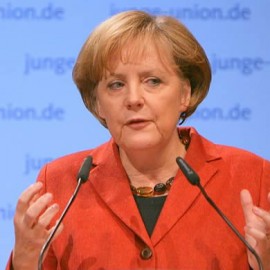
Germany, we were told, would do whatever it takes to save the euro. Such a clear, unequivocal commitment should serve to reassure the markets and convince the public that the European Union would be put back on the right road.
However, such a commitment cannot be kept. Not by Germany, and not by anyone else.
Not by Germany, because the constitutional court there insists that each financial contribution to a European bail-out fund is approved by the German parliament, and no-one can bind the Bundestag to any particular decision. The transition from the European Financial Stability Facility (EFSF) to the European Stability Mechanism (ESM) is intended to reduce the number of times national parliaments are asked for their assent to providing funds: they will approve the strategy but not the financial detail.
And not by Germany because the constitutional court has also ruled that open-ended financial commitments would be against the constitution. Eurobonds to the full value of European debt would require a change in the German constitution. That is one of the reasons for thinking of eurobonds that are limited to 60 per cent of GDP or which are time-limited. (See the proposal from Graham Bishop here.)
And if not by Germany, nor by anyone else. Germany has the largest economy of any member state, is in the strongest financial position of any member state, and is the only country whose politicians could even think of making such a commitment. No other country, no matter how Europhile, could do this if Germany cannot.
So if the language of whatever it takes is hollow, what are we left with? Does that mean that Germany will do nothing?
No, certainly not. Germany and the other member states are currently offering another €130 billion in loans to Greece and preparing to write off perhaps 50 per cent of the loans that have already been made, if Greece will in turn implement a range of cuts and economic reforms. One can dispute whether the cuts or the reforms are the right ones, but there are actions needed by all parties in this crisis.
The essence of the European Union is that it is mutual. It is not founded on unilateral actions or commitments: nobody can say they will do what it takes, because nobody can do what it takes if the others will not also do what they must. It is founded on agreements.
That was true in 1957, and it is true today. The future of the European Union depends on agreement between the member states now as much as it ever did. If that agreement cannot be found – if the member states cannot cooperate in good faith – then the European Union as we know it cannot expect to survive. Don’t believe any country that says it will do what it takes, for it can’t.
